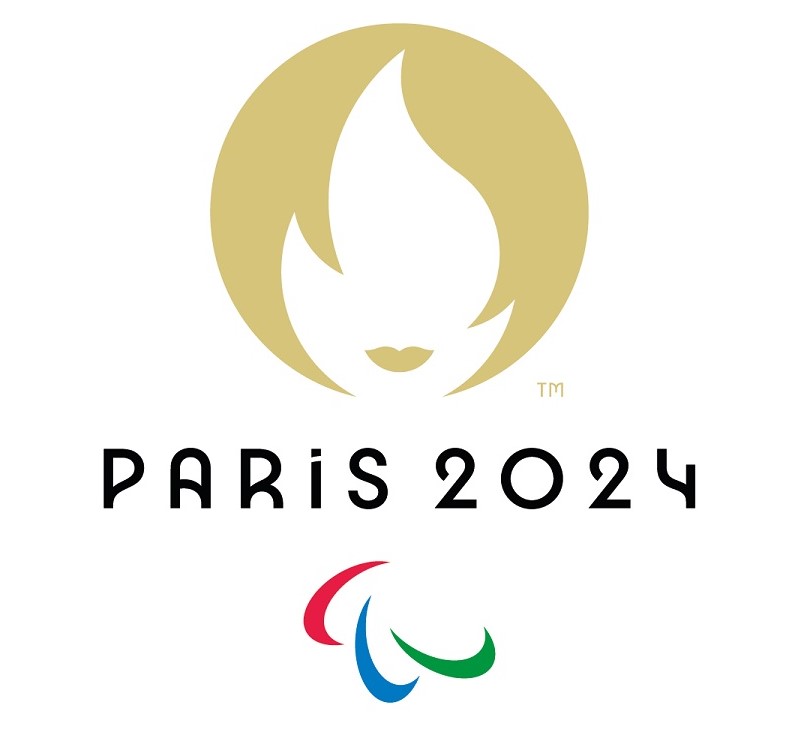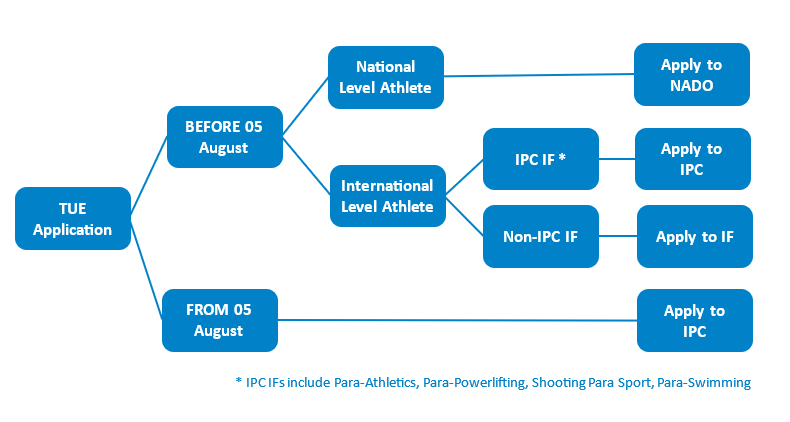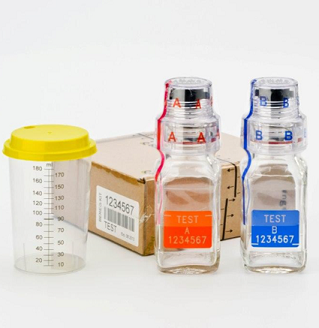Paris 2024 Paralympic Games – Anti-Doping Programme
The International Paralympic Committee (IPC) is responsible for directing the anti-doping programme at Paris 2024 Paralympic Games, from the opening of the Paralympic Village on 21 August 2024 up to and including the day of the Closing Ceremony on 08 September 2024.
The Paris 2024 Organising Committee and the French National Anti-Doping Agency will cooperate closely with the IPC in the delivery of the doping control activities, both prior to and during the Paralympic Games.
| Testing Authority (TA) | IPC |
| Sample Collection Authority (SCA) | Paris 2024 Organising Committee |
| Results Management Authority (RMA) | IPC |
The IPC Anti-Doping Code (IPC Games Rules) shall apply during the Games period. Athletes qualified and registered by their National Paralympic Committee (NPC) may be tested at any time during the Paralympic Games period – or at any time leading up to the Paralympic Games, regardless of their location.
All participants at the Games accept the IPC Anti-Doping Code as a condition of their participation and are presumed to have agreed to comply with it.
Key Dates
| From 05 August | All athletes requiring a TUE must apply to the IPC TUE Committee |
| 21 August | Opening of the Paralympic Village / Start of the Games Period |
| 28 August | Opening Ceremony |
| 29 August | Competition Starts |
| 08 September | Closing Ceremony / End of the Games Period |
Anti-Doping Guide – Paris 2024 Paralympic Games
The Anti-Doping Guide for the Paris 2024 Paralympic Games is published by the Paris 2024 Organising Committee in May 2024.
Anti-Doping Education
The IPC supports the “Education First” principle, where an athlete’s first experience with anti-doping should be through education – before being subject to doping control and before they leave their country for their first competition as an international-level athlete.
NPCs are strongly encouraged to liaise with their respective National and Regional Anti-Doping Organisations (NADOs and RADOs) to ensure that athletes and athlete support personnel selected to participate in the Paralympic Games receive anti-doping education in advance of the event.
ADEL for Paris 2024
The IPC has collaborated with WADA to develop an ADEL for Paris 2024 course aimed at athletes and support personnel. It provides an overview of the anti-doping program at the Games and key dates during the Games, roles and responsibilities and the TUE application process.
ADEL for Paris 2024 will be launched in February-March 2024 and will be available in multiple languages. ADEL for Paris 2024 can be found here.
NPCs are encouraged to make completion of this course mandatory for all members of their delegation participating in the Paralympic Games – particularly in the absence of a robust education programme being available from your NADO or RADO.
*Note: Please ask your athletes, when registering for ADEL, to select the Para sport when setting up their profile. This will ensure their successful completion of the course can be recognised by IPC and other Para sport International Federations.
Other ADEL Courses
In addition, IPC recommends the following education activities also available on ADEL:
- International Level Athletes Education (for athletes)
- Coaches of High-Performance Education (for coaches)
- ADEL for Medical Professionals at Major Games (for medical support personnel)*
* Note: the ADEL for Medical Professionals at Major Games programme is mandatory for all medical doctors who wish to register for the Paris 2024 Paralympic Games.
Therapeutic Use Exemptions
Athletes sometimes need to take a Prohibited Substance or use a Prohibited Method to treat an illness or medical condition. Before taking any such medication, they must apply for a Therapeutic Use Exemption (TUE). If approved, a TUE permits the athlete to use the prohibited substance or method while competing, without triggering an anti-doping rule violation.
A TUE will only be approved if it meets the requirements of the International Standard for TUEs (ISTUE).
Athletes who already have a TUE
If an athlete already has a valid TUE issued by their National Anti-Doping Organisation or International Federation, the TUE must be recognised by the IPC. The athlete or NPC can submit a request for recognition by email to tue@paralympic.org quoting the TUE reference number in ADAMS.
Athletes who need to apply for a new TUE
Prior to 05 August 2024, athletes must determine where to apply for a TUE. If they are considered an International-level Athlete by their IF’s rules they must submit their TUE application to their IF. If not, athletes should contact their National Anti-Doping Organisation (NADO) for further advice.
From 05 August 2024, ALL athletes must apply to the IPC TUE Committee by submitting the completed TUE application with supporting medical documentation either via ADAMS, or by email to tue@paralmpic.org. Submissions must be in English.
If approved, the TUE will only be valid for the duration of the Games (unless the IPC is the International Federation for the sport).
The TUE application form is available to download from the IPC website here.
Athlete Whereabouts Requirements
Being able to locate athletes for out-of-competition testing, without any advance-notice, is one of the most powerful means of deterring and detecting doping in sport. Any athlete can be tested at any time and any place.
All athletes who are already included in a Registered Testing Pool or Testing Pool must continue to provide sufficient details in their whereabouts filings, so that they can be easily located for testing, from the date of the opening of the Village up to and including the date of the Closing Ceremony of the Games.
In addition, all NPCs must provide accurate, timely information on arrival/departure dates and rooming list allocations (including for athletes that stay in private accommodations) for ALL athletes competing at the Games.
The IPC will communicate directly with NPCs within 3 months of the Games with more details on how to provide this whereabouts information, including a whereabouts form template to complete. The use of this form is not mandatory, NPCs may choose to submit the information in any format they prefer as long as the following information is provided:
• NPC name and dedicated contact person
• Athlete name and sport
• Athlete arrival and departure dates.
• Athlete room allocations in the Paralympic Village, including Satellite Villages and any other official or individual accommodations in France.
The above information must be provided in English and submitted within 24 hours of the NPC’s final Delegation Registration Meeting (DRM) – either by email to whereabouts@paralympic.org or via a Sharefile link that will be provided in advance by the IPC.
The mandatory period of the above information is defined as the period during which both requirements below are met:
• During the Games period (21 August – 08 September); and
• The presence of each athlete in France.
NPCs must continue to monitor and manage their whereabouts information throughout the Games Period, provide any relevant updates as new athlete whereabouts information becomes available or existing information changes and provide any further reasonable assistance requested by the IPC in order to locate athletes belonging to their delegation during the Games Period.
Doping Control Guide for Testing Athletes in Para Sport
The IPC’s Doping Control Guide for Testing Athletes in Para Sport is available to download from the anti-doping section of the IPC website.
This guide provides advice on how to prepare for and manage the sample collection process when testing athletes who compete in Para sport. It also provides information about the Para sport classification system (including the types of impairments) and the types of modifications that may be required to complete the sample collection process.
IMPORTANT:
It is the athlete’s responsibility to provide whatever additional equipment is necessary to provide a urine sample, for example, a catheter/drainage system or a urine collection container (Article A.4.7 of the ISTI).
Should an athlete not have the additional equipment necessary to provide a urine sample, the DCO may, at their discretion, allow the athlete the opportunity to locate the equipment they require. The athlete must remain under the observation of the DCO/chaperone throughout.
If the athlete is ultimately unable to provide a sample, due to lack of appropriate equipment, they could be charged with an anti-doping rule violation for failing to submit to doping control.
If unsure what type of collection device is most appropriate for their needs, the athlete should seek advice from a nurse, physician, or occupational therapist.
Doping Control Equipment
Berlinger sample collection equipment will be used at the Paris 2024 Games for the collection and sealing of urine samples and the sealing of blood samples.
Lockon accessories, such as tubes and needles, will be used for the collection of blood samples .
The Tasso-M20 device will be used for collecting dried blood spots.
This equipment conforms with the 2023 International Standard for Testing and Investigations (ISTI) Article 6.3.4.
WADA Athlete Engagement Programme
WADA’s Athlete Engagement Programme aims to raise awareness and promote clean sport at major sporting events worldwide. It has developed into an effective means of reaching out to and educating athletes and their entourage on the dangers and consequences of doping.
An engagement booth will be located in the main dining hall in the Paralympic Village and any satellite villages for short-periods of time. Critical to the success of the programme is the one-on-one interaction that athletes, coaches and officials will experience with anti-doping experts and athlete role models from around the world. The programme will be supported by a variety of educational materials, a fun and informative quiz, as well as different interactive activities.
Paris 2024 Anti-Doping Taskforce
The IPC has established a Paris 2024 Anti-Doping Taskforce to assist all Anti-Doping Organisations (ADOs) in implementing an effective and coordinated testing programme for athletes likely to compete at the Paris 2024 Paralympic Games.
The Taskforce will assist the IPC in providing ADOs with testing recommendations, to help ensure their resources are targeted in a way that maximises both detection and deterrence of doping in Para sports leading up to the Games. The Taskforce is led by the IPC and includes a number of anti-doping experts from around the world, including an athlete representative.
Further to these recommendations, the IPC intends to use the work of the Taskforce to:
- Raise awareness and understanding by ADOs of the risks of doping in Para sport, to inform their testing pools and test planning over the longer term.
- Educate on specific anti-doping needs of Para athletes and their classifications.
- Build or strengthen relationships between National and Regional Anti-Doping Organisations (NADOs/RADOs) and National Paralympic Committees (NPCs).
Click here for more information or contact antidopingtaskforce@paralympic.org.
More Information
If you have any questions or require further information about the anti-doping programme at the Paris 2024 Paralympic Games, please contact antidoping@paralympic.org.






